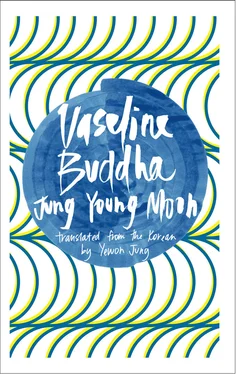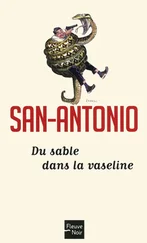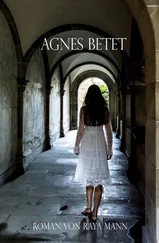And he could go back to thinking about the monkey he’d encountered, and although he wasn’t greatly inspired by the monkey’s incredible, and in some ways, inspiring act, he could accept the monkey’s act as its idiosyncrasy and be inspired by another fact regarding monkeys. And it was about a monkey that killed a human being, how a monkey in a Southeast Asian country climbed a tall tree and threw a coconut at its master, hitting the target and killing him on the spot, and the master, who made the monkey pick coconuts when he was alive, exploited the monkey, making it work without a break, and beating it when it didn’t do as told, and he could think that in a way what the monkey did could be seen as an animal uprising against one-sided human abuse, which could be considered something that should be included if a history of the relationship between animals and humans were to be rewritten, and although there were many incidents in which animals killed humans, they were caused accidentally by excited or angry animals, unlike what the monkey did, which involved premeditation, which could be seen from a new perspective, and perhaps animals kept what humans did to them in their collective memory and quietly prepared for revenge against humans, as suggested by the research finding of some zoologists who observed chimpanzees collecting stones in advance in order to throw them at visitors who came to the zoo, and think that it was strangely inspiring.
And (here I’m making a list of everyday things) someone could quite accidentally find a sign indicating that there’s an artificial eye research center on the sixth floor of a high-rise building, and very excited, suppress the urge to go there right away, and think that it’s not a place you could easily visit with both eyes intact and that he isn’t qualified to go there yet, but may one day open the door to the research center and enter and wonder why he feels great interest in physical aids, such as artificial eyes, false teeth, and prosthetic legs, and try to find out the reason.
As a result, he could think that perhaps it was because when he was young, his beloved, deceased grandmother wore false teeth, and the teeth she took out and put in a glass of water at night seemed both frightening and wonderful to him, and because when he looked at his grandmother’s teeth, he felt as if they were glaring at him, even though they weren’t the eyes of an animal, and that the reason why the teeth seemed frightening was because they looked like part of a skeleton, but a more immediate reason was because a very old man, who wore false teeth and seemed crazy and was short, frightened him, as well as a speech-impaired man who was bound to be found in any town, and another disabled man. And he could recall memories of the man, who came running from somewhere with all his might, though he wasn’t very fast, when children were having fun playing, and chased them away as if he were annoyed that they were having so much fun, as if to keep them from playing in such a way, or in other words, having fun — which was understandable, for the man, who could have been crazy and was old almost to the point of death, could have been annoyed with children having fun, which may have seemed unsightly to him, and didn’t want to see them when he himself felt as if he were about to die, at the point of death — and when he did, he always had false teeth in his hand, and what in fact the children were afraid of wasn’t the man, who was as small as they were, but the false teeth with several teeth missing — perhaps he knew that the false teeth in his hand would frighten the children — and the frantic feeling they could sense in the man who was running toward them. And he could recall how later, when the man could no longer be seen, and children no longer felt frightened by his him, seeing his false teeth, and people said he was dead, he wondered what happened, above all, to his false teeth.
And he could recall how once, he looked up false teeth in a book because he liked to leaf through medical literature to pass the time and it suddenly occurred to him that false teeth were one of the many marvelous human inventions, and was pleased to learn that from ancient times, people have used false teeth made from hippopotamus or sea elephant tusks, or teeth from dead people, but they rotted easily, so before the modern days, when ceramic false teeth were devised, most people had bad teeth, and thought that he wanted to write a story about false teeth, and actually wrote a short story about them as follows.
One very cold winter’s day long ago, I was standing in the courtyard of a royal palace, from which I could see Budapest, Hungary at a glance. The palace, which could be seen at a glance from anywhere downtown, looked bleak, and it also looked bleak downtown, which could be seen at a glance from the palace. It was still early, and although I hadn’t planned on it, I was the first to arrive at the palace. The museum that used to be a palace wasn’t open yet, and I was able to go into the museum and get away from the cold after waiting for a long time — I mostly stood around the heaters, like someone who had come to get away from the cold, or looked halfheartedly at works that were on exhibit far away, which would have suited only the tastes of the royal family in the past and didn’t inspire any feelings in me — but the interior of the royal palace and the things therein seemed only to be conspiring to make people feel as heavyhearted as possible.
After I warmed up I came out of the palace building as if to escape and took a walk in the courtyard, thinking about what I should do next and looking down at downtown Budapest, which looked gloomy even at a glance, and found something startling on a bench in a dark corner of the garden, which looked like false teeth and were, in fact, false teeth. I sat down cautiously at the other end of the bench on which sat the false teeth, for when I saw the false teeth that were sitting quietly and solemnly at one end of the bench, I felt as if there were an octopus or a sea elephant sitting on the bench where, ordinarily, there would be a lost mitten.
The false teeth, which belong in the mouth, but were now separated from the lips that gently covered them and the teeth that softly touched them, and whose upper and lower parts were precisely overlapped, the teeth facing me and tightly clamped, looked as if they were smiling mischievously, or were angry, or quite meek yet very arrogant, and, depending on how you looked at them, they could look as if they were making any kind of expression. I was extremely surprised to find out that false teeth, consisting of upper and lower teeth, could make such a variety of expressions, and I, too, bore my teeth and made various expressions at them for a little while. No, I didn’t actually do it, only in my mind.
As I did, I looked at the false teeth that were before me and thought that the teeth, which made me think of a helmet, although they didn’t look like a helmet, containing memories of battles and honorable wounds, and had nothing about them that was a direct reminder of a helmet — did a certain helmet I saw a little earlier in the museum bear a natural connection to the false teeth? — should be endowed with some kind of a glory, but I wasn’t sure if I could endow it with a glory that was fitting. Looking at the false teeth that looked like some kind of an installation piece, I wondered how they had come to be at that place, and who had placed them there, and tried to find clues about their original owner, but the only thing I could come up with was that he must have had no choice but to wear false teeth because his natural teeth went bad, and I thought arbitrarily that it was because the false teeth, which used to be a part of someone’s mouth, told me nothing more than that.
It was possible that the owner of the teeth, who was traveling, was very absentminded and forgot that he had placed them there and gotten on a train headed someplace else in Europe, but that didn’t seem very likely. Or it was possible that the owner, who was from the area, or was a traveler from another continent and could be from anywhere in the world, had gotten a new set of false teeth, and while agonizing over what to do with the old, which had become worn, even shaky, during the long time they were with him, and which he could have grown quite fond of — it was possible that he wanted to bury them someplace, perhaps in a cemetery or in his garden at home, wishing to give them a proper funeral — he put them in a public place, anticipating that the people who found them would be surprised for a moment, then extremely delighted.
Читать дальше












